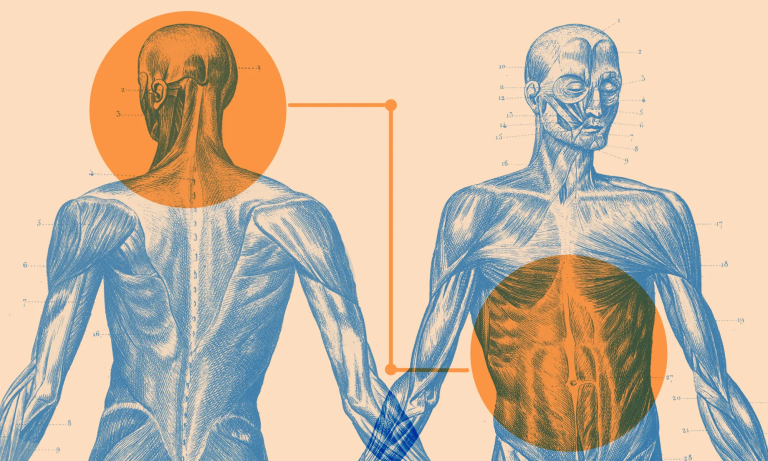Myth and Fact, Drinking Cold Water

innovuscollege.com – Drinking cold water is something most of us enjoy on a hot day or after a workout, but there are numerous myths and claims about its potential health effects. While some people believe cold water can harm digestion or make you more susceptible to illness, others see it as refreshing and harmless. So, what’s true and what’s not? Here’s a look at some common myths and facts about drinking cold water.
1. Myth: Drinking Cold Water Hinders Digestion
- The Claim: Some believe that drinking cold water, especially during meals, can slow down the digestive process by causing blood vessels in the stomach to constrict. According to this theory, it forces the body to work harder to digest food, leading to issues like cramps or discomfort.
- The Fact: While cold water may momentarily cause blood vessels to tighten, it doesn’t interfere significantly with digestion. The stomach warms up the water relatively quickly, bringing it closer to body temperature, which prevents any lasting impact on digestion. However, drinking cold water alongside greasy foods could slow the rate of digestion slightly since it may cause fats to solidify, though this is a minor effect for most people.
2. Myth: Cold Water Helps Burn More Calories
- The Claim: Drinking ice-cold water forces your body to burn extra calories by warming the water to body temperature, thus aiding weight loss.
- The Fact: While there’s some truth here, the calorie burn is minimal. When you drink cold water, your body does expend a small amount of energy to heat it up to body temperature. However, the number of calories burned is very small—about 8 calories for a 16-ounce glass. So, while drinking cold water may have a tiny effect on calorie burn, it isn’t significant enough to make an impact on weight loss.
3. Myth: Cold Water Can Cause Sore Throat or Cold Symptoms
- The Claim: Some people believe that drinking cold water, especially during colder months, can cause sore throats or make you more susceptible to catching a cold.
- The Fact: Cold water does not cause a sore throat or a cold. Colds and other respiratory infections are caused by viruses, not temperature. However, drinking cold water can sometimes cause a temporary tightening of blood vessels, which may feel uncomfortable if you already have throat irritation or respiratory congestion. In certain cases, cold water may aggravate symptoms in individuals with sensitivities, but it’s not the root cause of these illnesses.
4. Myth: Cold Water is Bad for People with Migraines
- The Claim: Cold water, especially ice-cold, is thought to trigger migraines or worsen existing headaches in people who are prone to migraines.
- The Fact: There is some evidence supporting this myth. Studies have shown that drinking very cold water or consuming cold food too quickly (like ice cream) can cause “brain freeze” or exacerbate migraine symptoms in sensitive individuals. This reaction, known as a “cold-stimulus headache,” can be particularly pronounced in people who already experience migraines. If you’re prone to headaches, it may be best to avoid very cold water to prevent discomfort.
5. Fact: Cold Water Can Be Hydrating and Refreshing Post-Workout
- The Claim: Drinking cold water after physical activity helps cool you down, rehydrate you, and even boosts endurance.
- The Fact: This is largely true. After intense exercise, cold water can help lower your core body temperature and make you feel more refreshed. Research suggests that athletes who drink cold water during exercise may experience better temperature regulation and feel more energized to continue. For most people, cold water is a refreshing and effective way to hydrate after physical activity.
6. Myth: Warm Water is Always Better for Health
- The Claim: Drinking warm water, especially first thing in the morning, is believed to improve digestion, detoxify the body, and aid metabolism, making it better for health than cold water.
- The Fact: Both cold and warm water have their benefits, depending on the situation. Drinking warm water can help with digestion and soothe your throat, which is beneficial when you’re sick or trying to relax. Cold water, on the other hand, is more refreshing and can aid in hydration, especially after a workout. There’s no definitive evidence that warm water is always healthier; it ultimately depends on personal preference and the context.
7. Fact: Cold Water May Cause Discomfort for Some People
- The Claim: Drinking cold water can cause stomach cramps or discomfort for certain individuals.
- The Fact: For some people, especially those with conditions like Irritable Bowel Syndrome (IBS) or achalasia, cold water may cause discomfort, cramping, or difficulty swallowing. Cold water can cause the muscles in the digestive tract to contract more strongly, which may be uncomfortable for those with digestive sensitivities. For such individuals, drinking room temperature or warm water might be more comfortable.
8. Myth: Cold Water is Unhealthy for Women During Menstruation
- The Claim: In some cultures, people believe that cold water consumption during menstruation can negatively affect menstrual flow or cause cramps.
- The Fact: There’s no scientific evidence to support this claim. Drinking cold water doesn’t affect menstrual health or cramping. Menstrual cramps are caused by the contraction of the uterine muscles, which isn’t influenced by the temperature of the water you drink. This belief is based more on cultural tradition than medical science.
9. Fact: Cold Water Can Increase Alertness
- The Claim: Cold water can help wake you up and increase alertness when you’re feeling sluggish.
- The Fact: This is true! Cold water provides a stimulating effect that can make you feel more alert, as it temporarily raises your heart rate and increases blood flow. Drinking a glass of cold water in the morning or during an afternoon slump may help you feel more awake and energized.
Conclusion
While drinking cold water is refreshing and has a few benefits, it’s also surrounded by myths. Overall, the temperature of your drinking water has minimal impact on health for most people. Cold water can be refreshing, hydrating, and safe in most situations, but warm or room-temperature water may be a better choice if you have sensitivities, digestive issues, or feel unwell. Ultimately, whether you prefer cold or warm water is a matter of personal choice and comfort—your body will get the hydration it needs either way.







